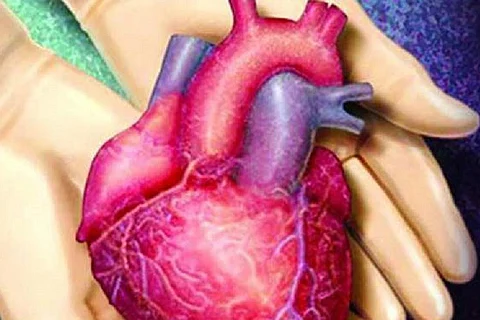

About 90% of the people waiting to receive an organ die without it, according to a report published in the Times of India (TOI). It also exposes other alarming statistics – while 25,000 Indians need a liver transplant, there are only 800 that happen annually. And of the 1.5 lakh people who need a kidney transplant, only 3000 receive one.
Only 0.08 per cent of Indians donate their organs to the needy as compared to 70-80 per cent of Spaniards and Belgians, according to health experts.
Various studies conducted in India suggest that while Indians are well aware of organ donation, many have not found a way to look past the myths that surround it. This Organ Donation Day, we bust the top five myths associated with organ donation.
1. Organ donation can only happen after death
Wrong. There are two types of transplant donation – living donor transplant and deceased donor transplant. The former, as the name suggests, takes place when a person is still alive and willingly donates his/her organs… and still survives. The latter is when organs are harvested from a brain dead person and transplanted into a living person in need.
However, not every organ can be donated after death or even before.
This report in TOI makes the distinction between which organs can be donated in the case of natural death, in case of brain death and what a living person can donate.
A person can donate a portion of their lungs, liver, pancreas as well as bone marrow, and a kidney and still live a hale and hearty life.
“In cases of cadaveric donation, two independent neurologists observe the patient over a span of 24 hours. A patient is only declared brain dead after doctors confirm that he/she does not have any brain stem reflexes,” says Dr Devanand NS, a cardiologist with Manipal Hospitals.
2. ‘If I become an organ donor then the doctors will not try to save my life’
Due to the fact that many organs can only be harvested after a person is deceased, many fear that doctors will not put as much effort into saving them.
In an eight-city survey conducted by TOI in 2015, at least one in five respondents from Bengaluru and Chennai were found to have this concern. But the first priority of a medical practitioner is to save your life. Further, the doctor who is overseeing you has nothing to do with the organ transplant, but caters to the expertise required for your condition.
“No doctor will ever take the life of a person to save another one. Nobody wants their patients to die,” Dr Devananda says.
3. ‘If I become an organ donor, they might steal my other organs’
Media representations of victims waking up in a tub with stitches on their sides and with one kidney missing has made people reluctant to pledge their organs for donation.
However, organ trade is illegal and happens very rarely when you hold the donor card of a trusted organization.
Dr Devananda debunks this myth stating all living donor transplants are videotaped and that there is a robust system that governs the process.
Also, patients requiring transplantation come through a strict process including legal coordination. No one can bypass the rules and the smallest of mistakes can result in stringent punishment, he adds.
4. Superstitions with relations to mutilation of body post-death
Many people raise concerns over the mutilation of body parts in order to harvest organs upon death. For instance, many believe that a person’s soul will not rest in peace if the body is not intact at the time of performing last rites.
Dr Raghu, a cornea and refractive surgeon with Dr Agarwal's Eye Hospital, says that one of the biggest myths regarding eye donation is that people feel that if a person donates his/her eyes, they might be born blind or even without eyes in their next birth.
These are purely superstitious beliefs.
5. ‘My religion does not allow for organ donation’
In a country where religion influences public as well as personal decisions, many believe that their faith does not allow for organ donation.
However, this compilation by the University of Michigan shows how most religions either support organ donation or leave the choice up to the individual. It says that most religions deem organ donation as a “generous act”.
Hinduism and Islam, the major religions in India, also do not oppose the practice. While Hinduism leaves the decision to the individual, Islam by the principle of valuing and saving human life, implies support.
Dr Raghu says that the beliefs of certain communities do not allow organ donation which is the reason why the latter do not promote it.
Despite the need and viability for organ donation, there are logistical hurdles as well. Manipal University, in a press release, emphasized the need for multiplying zonal organ procurement areas in Karnataka facilitating easier organ retrieval and transport.
It suggested easing post-mortem procedures in medico-legal cases so that family members do not have to run around for paperwork and formalities when they lose a dear one.
There’s also a lack of trained counsellors who can speak to mourning families, explain to them why donation is helpful and motivate them for donating the eyes of the deceased, explains Dr Raghu.
Government support, Dr Devananda says, is also required to make the process of organ donation smoother. From declaring a person brain dead and taking care of the legal processes, to police and forensic clearances and transport of the retrieved organs after that.
“There's no greater gift than organ donation. A body will finally be cremated or buried, but instead if we give life to someone through it, we are directly benefiting someone’s life,” Dr Devananda concludes.
(IANS input)